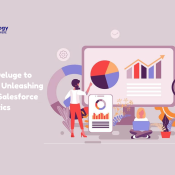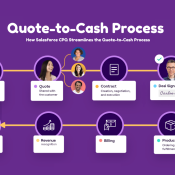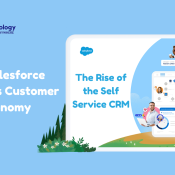
Beyond Personalization: The Rise of Hyper-Personalization in CRM
In today's digital age, customer expectations are at an all-time high. Consumers crave experiences that feel tailored to their unique needs and preferences. While personalization has been the go-to strategy for CRM for some time, a new wave is emerging: hyper-personalization. This advanced approach goes beyond basic segmentation, leveraging AI and data insights to create real-time, one-on-one customer interactions that feel truly individual.
Personalization vs. Hyper-Personalization: What's the Difference?
Personalization in CRM has traditionally involved segmenting customers based on broad characteristics like demographics, purchase history, or website behavior. This allows businesses to tailor content, offers, and messaging to different customer groups. However, personalization can often feel generic. Customers may still receive irrelevant recommendations or generic marketing messages that don't resonate.
Hyper-personalization takes personalization to a whole new level. It utilizes sophisticated AI algorithms and machine learning to analyze a vast amount of customer data, including past interactions, preferences, real-time behavior, and even emotional context. This allows for highly specific and dynamic personalization that evolves as the customer interacts with the brand. Think of it as the difference between offering a generic "welcome email" to all new customers versus crafting a personalized message that references their recent purchase or browsing history.
Hyper-Personalization with Salesforce AI
Salesforce is at the forefront of hyper-personalization with its Einstein AI platform. Einstein incorporates a suite of AI tools that empower businesses to personalize customer experiences across all touchpoints. Here are some key features:
- Predictive Analytics: Leveraging past data and machine learning, Einstein can predict customer needs and preferences. This allows businesses to proactively recommend relevant products, services, or support before the customer even knows they need them.
- Real-Time Customer Journeys: Einstein tracks customer behavior in real-time, allowing for dynamic adjustments to interactions throughout the customer journey. Imagine a customer browsing a specific product category online. Einstein can trigger a personalized chat message from a sales representative offering assistance or product recommendations based on their browsing history.
- AI-Powered Recommendations: Einstein analyzes customer data to recommend products, services, or content that are most likely to resonate with each individual. This ensures that marketing and sales efforts are highly targeted and relevant for each customer.
- Sentiment Analysis: Einstein can analyze customer interactions and social media mentions to understand customer sentiment. This allows businesses to personalize communication based on a customer's current mood or emotional state. For example, if a customer expresses frustration on social media, Einstein can trigger a proactive message from a customer service representative offering personalized support.
Benefits of Hyper-Personalization in CRM
There are numerous benefits to embracing hyper-personalization in CRM:
- Increased Customer Satisfaction: When customers feel like their needs and preferences are truly understood, they are more likely to be satisfied with the brand experience Personalized experiences can foster customer loyalty and positive brand sentiment.
- Improved Conversion Rates: By recommending products and services that are relevant to each customer's needs, hyper-personalization can lead to higher conversion rates and increased sales.
- Enhanced Brand Image: When customers feel valued and understood, they are more likely to see the brand as innovative and customer-centric. This can lead to improved brand perception and reputation.
- Increased Customer Lifetime Value: Hyper-personalization can help businesses build stronger relationships with their customers, leading to increased customer lifetime value.
Hyper-Personalization: Challenges and Considerations
While hyper-personalization offers numerous benefits, it also presents some challenges and considerations:
- Data Privacy: Hyper-personalization relies heavily on customer data. Businesses need to ensure they are collecting and using data ethically and in compliance with data privacy regulations like GDPR and CCPA Transparency and customer consent are crucial for building trust.
- AI Bias: AI algorithms can perpetuate biases present in the data they are trained on. Businesses need to be vigilant about monitoring their AI models for bias and ensuring they are delivering fair and equitable experiences for all customers.
- Customer Overwhelm: While some customers appreciate a highly personalized experience, others may find it intrusive. Businesses need to strike a balance between personalization and respecting customers' privacy.
Conclusion
Hyper-personalization represents the future of customer relationship management. By leveraging AI and data insights to tailor experiences to individual needs, businesses can forge stronger customer connections, drive growth.




